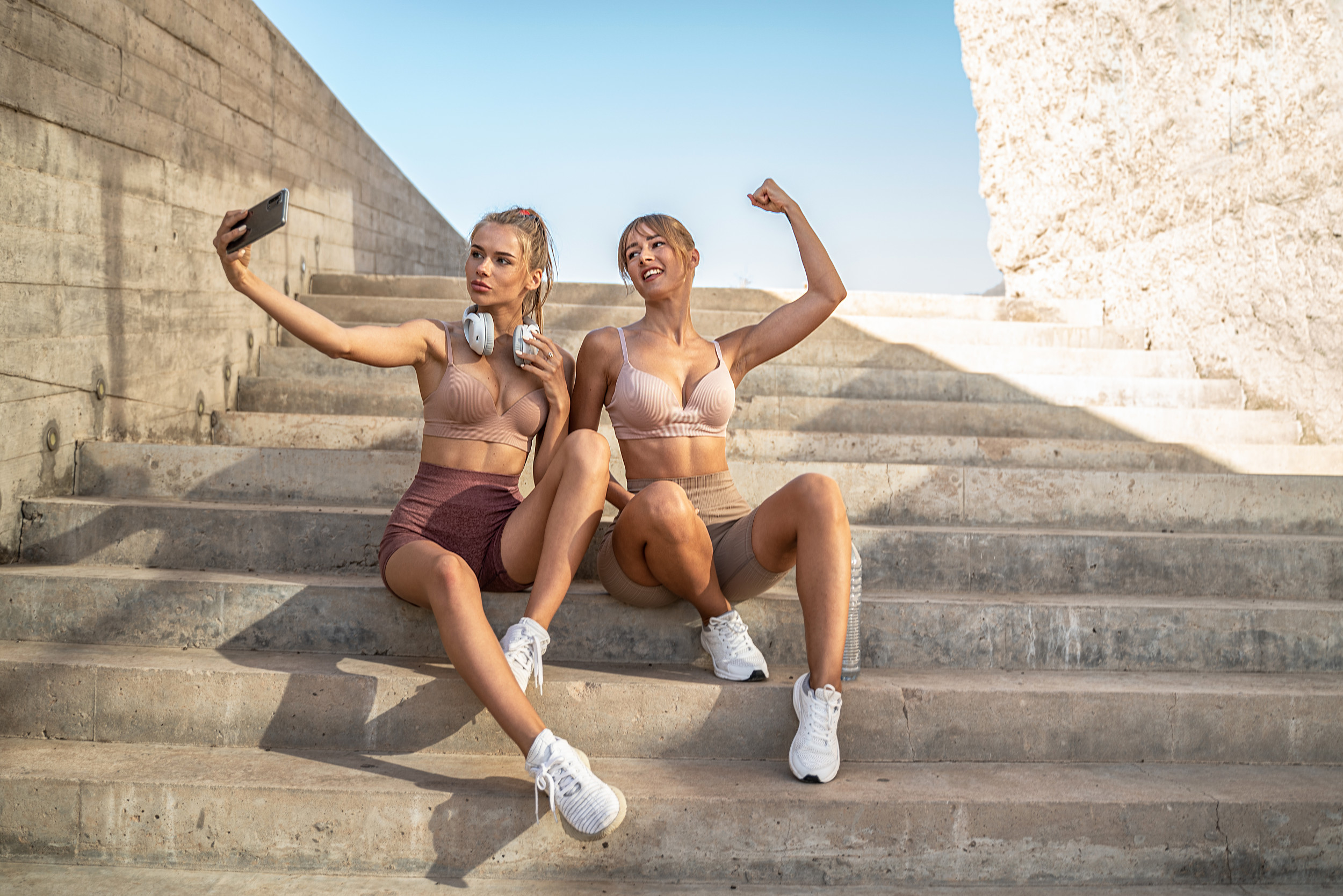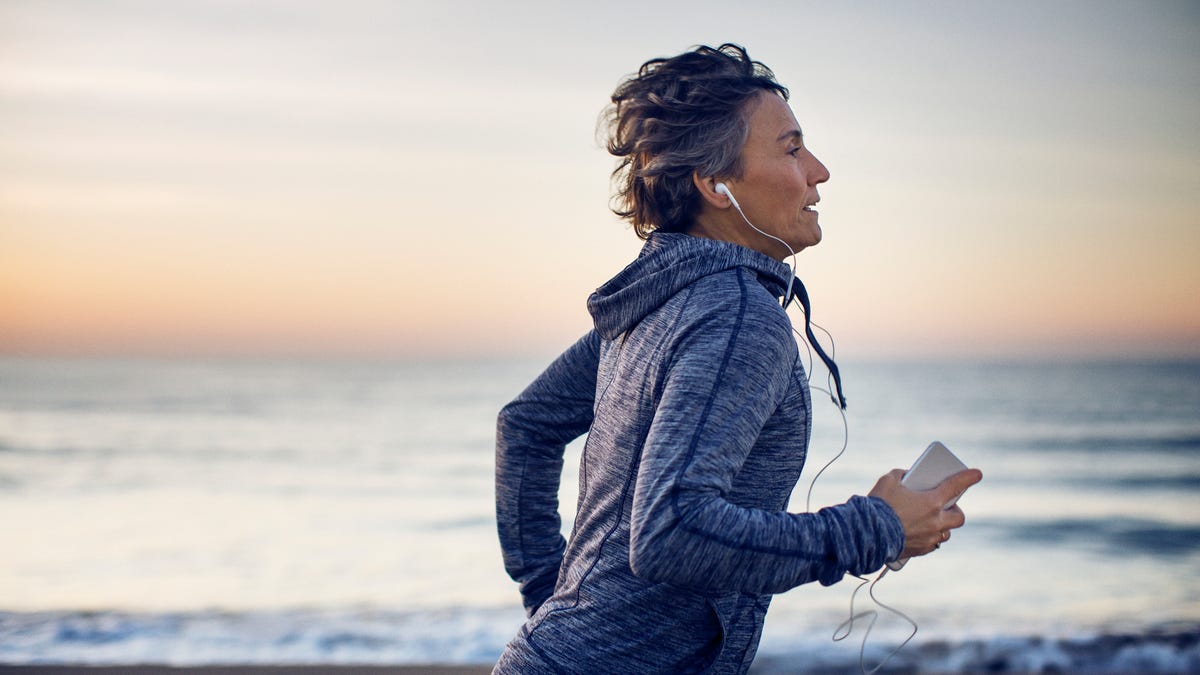Fitness
TikTok fitness content may cause body image issues, study says

“Fitspiration” content on TikTok reinforces harmful body ideals, spreads health misinformation, and contributes to the oversexualization of women, according to a recent Australian study.
The study defined fitspiration content as “images and videos that aim to inspire individuals to live an active and healthy lifestyle through diet and exercise.”
Scientists at Flinders University expressed concerns that it could contribute towards body dissatisfaction, excessive dieting and the glorification of eating disorders among TikTok’s largely teenage user-base.
“Our study highlights concern about the triggering and misleading information portrayed by unqualified influencers and that we need far greater scrutiny of the TikTok fitness community,” said lead author Samantha Pryde in a statement.
“TikTok fitspiration videos often promote an idealized view of body types and there is concern that this is causing negative body image issues especially in young women.”
Scientists at Flinders University analyzed 200 TikTok fitspiration videos using popular hashtags such as fitness, fitspo, gymtok and fittok.
The vast majority were posted by fitness influencers without relevant qualifications, and as many as 60 percent were found to contain incorrect or harmful information related to diet, health and fitness, the study found.
NeonShot/Getty Images
“Worryingly, we found that the vast majority of influencers behind the content lacked credible health and fitness qualifications, underscoring a pervasive issue where influencer popularity overshadows the accuracy and safety of the information they provide,” said social scientist Professor Eva Kemps, a co-author of the study, in a statement.
Associate professor Ivanka Prichard, also a co-author and an expert in body image, exercise and health psychology, added: “Our study illustrates the need for more research and enhanced regulation regarding advertising by influencers on social media.
“We need more collaboration with public-health organizations, so that fitness influencers are encouraged to share evidence-based information that promotes healthy, realistic expectations for body image and fitness.”
The team discovered that more than half—55.7 percent—of the content they analyzed featuring women involved sexualization or objectification, while 20 percent involved body shaming and 8.6 percent promoted disordered eating behaviors.
“Alarmingly, we found that the majority of the videos perpetuated negative messages, including sexualization, body shaming and excessive dieting,” said Pryde.
Fitspiration content featured solely women more than solely men—78 and 10 percent of the videos respectively—and content featuring women promoted appearance-related reasons for exercise more frequently than videos featuring men.
The scientists found that women’s body parts were more often objectified too, especially the thighs and buttocks, and that the ideal female body type tended to be thin and fit.
“TikTok fitspiration videos often promote an idealized view of body types and there is concern that this is causing negative body image issues especially in young women,” said Pryde.
“The content typically showcased and promoted an ideal ‘thin’ body type, indicating that thinness is still a key driver of body issues for women that can negatively impact their physical and mental health.”
However, men were objectified in these videos as well, likely to be portrayed as muscled. Videos of men tended to feature bodies with obscured, blurred or cropped-out faces, and featured groups of men—whereas women were more likely to be featured solo.
“This evolving objectification raises concerns about the impact of fitspiration on male body image as well, with increasing evidence suggesting that male viewers are similarly affected by idealized imagery,” said Kemps
The study authors said that this likely reflected gendered workout habits, with the gym seen as a social, competitive space among men, and exercise a solo endeavor for women.
“In a world increasingly influenced by digital media, monitoring the impact of fitspiration content remains crucial in promoting and protecting healthier body image narratives, and fostering supportive fitness cultures,” said Prichard.
Do you have a tip on an exercise or fitness story that Newsweek should be covering? Is there a health concern that’s worrying you? Let us know via science@newsweek.com. We can ask experts for advice, and your story could be featured in Newsweek.
Reference
Pryde, S., Kemps, E., & Prichard, I. (2024). “You started working out to get a flat stomach and a fat a$$”: A content analysis of fitspiration videos on TikTok. Body Image, 51. https://doi.org/10.1016/j.bodyim.2024.101769









